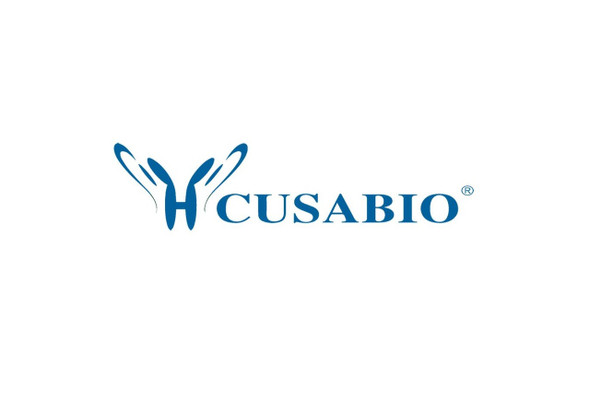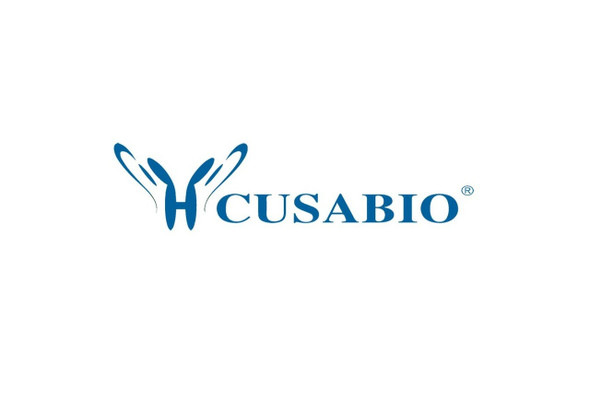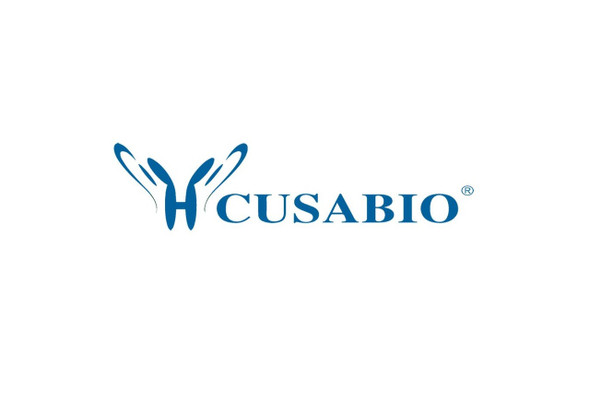Cusabio Active Proteins
Recombinant Human Tumor necrosis factor ligand superfamily member 9 protein (TNFSF9) (Active) | CSB-AP001961HU
- SKU:
- CSB-AP001961HU
- Availability:
- 5 to 10 Working Days
Description
Recombinant Human Tumor necrosis factor ligand superfamily member 9 protein (TNFSF9) (Active) | CSB-AP001961HU | Cusabio
Protein Description: Partial
Alternative Name (s) : 4-1BB ligand,
Gene Names: TNFSF9
Research Areas: Cancer
Species: Homo sapiens (Human)
Source: E.Coli
Tag Info: Tag-Free
Expression Region: 71-254aa
Sequence Info: REGPELSPDD PAGLLDLRQG MFAQLVAQNV LLIDGPLSWY SDPGLAGVSL TGGLSYKEDT KELVVAKAGV YYVFFQLELR RVVAGEGSGS VSLALHLQPL RSAAGAAALA LTVDLPPASS EARNSAFGFQ GRLLHLSAGQ RLGVHLHTEA RARHAWQLTQ GATVLGLFRV TPEIPAGLPS PRSE
Biological Activity: Fully biologically active when compared to standard. The ED50 as determined by stimulation of IL8 production using human PBMC is less than 10 ng/ml, corresponding to a specific activity of > 1.0 × 105 IU/mg.
MW: 19.4 kDa
Purity: >95% as determined by SDSPAGE and HPLC.
Endotoxin: Less than 1.0 EU/µg as determined by LAL method.
Relevance: Cytokine that binds to TNFRSF9. Induces the proliferation of activated peripheral blood T-cells. May have a role in activation-induced cell death (AICD) . May play a role in cognate interactions between T-cells and B-cells/macrophages. {ECO:0000269|PubMed:20032458}.
PubMed ID: 8088337; 15489334; 20032458
Notes: Repeated freezing and thawing is not recommended. Store working aliquots at 4℃ for up to one week.
Function: Cytokine that binds to TNFRSF9. Induces the proliferation of activated peripheral blood T-cells. May have a role in activation-induced cell death (AICD) . May play a role in cognate interactions between T-cells and B-cells/macrophages.
Involvement in disease:
Subcellular Location: Membrane, Single-pass type II membrane protein
Protein Families: Tumor necrosis factor family
Tissue Specificity: Expressed in brain, placenta, lung, skeletal muscle and kidney.
Paythway:
Form: Lyophilized powder
Buffer: Lyophilized from a 0.2 µm filtered PBS, pH 7.4
Reconstitution: We recommend that this vial be briefly centrifuged prior to opening to bring the contents to the bottom. Please reconstitute protein in deionized sterile water to a concentration of 0.1-1.0 mg/mL.We recommend to add 5-50% of glycerol (final concentration) and aliquot for long-term storage at -20℃/-80℃. Our default final concentration of glycerol is 50%. Customers could use it as reference.
Uniprot ID: P41273
Uniprot Entry Name: TNFL9_HUMAN
HGNC Database Link: HGNC
UniGene Database Link: UniGene
KEGG Database Link: KEGG
STRING Database Link: STRING
OMIM Database Link: OMIM









